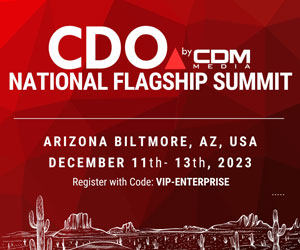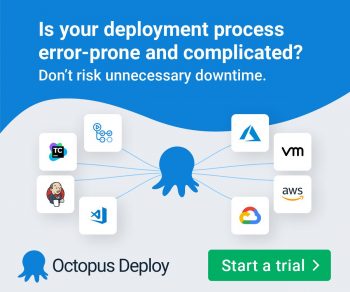Compliance with frameworks such as SOC 2, ISO 27001, ISO 27701, ISO 27017, ISO 27018, HIPAA, FedRamp, CMMC, Cloud provider-specific frameworks such as CIS AWS Foundation Benchmark, IBM Financial Services Cloud, Oracle Cloud, and others are essential today for SaaS companies to earn customers’ trust. However, suppose the compliance process depends on labor-intensive manual monitoring and evidence collection processes and on providing your solution for multi-cloud environments; there are high chances of significant gaps in security, privacy protection, and the other facets of a compliance program including staying compliant with all the time. Now companies can automate their compliance journey of monitoring and evidence collection processes for their specific company and standard mandated controls while ensuring continuous compliance using today’s compliance automation platforms supporting multi-standard frameworks that are customizable to mid and large-size enterprises.
Security compliance automation
Growing compliance obligations are becoming necessary for SaaS companies to do business these days and can consume more than 40% or more of security budgets in IT organizations. By using security compliance management and automation tools, an enterprise can get a handle on it by saving time and costs by automating their repetitive manual tasks, monitoring the company’s internal systems and controls while collecting evidence regularly to help ensure that the company complies with security standards and regulations. A compliance automation software platform provides flexibility, customizability, and broad integrations for monitoring controls and collecting evidence from many different services being used by organizations these days. It streamlines the arduous process of complying and maintaining compliance with respective standards and regulations and notifying the stakeholders of any non-compliance instantly.
Continuous compliance Monitoring
Continuous compliance is required to ensure that best security practices and controls are in place and are working effectively to maintain compliance. Continuous compliance requires constant monitoring of assets such as SaaS services, data stores, and employee laptops. Continuous monitoring is the only way to quickly identify and remedy security gaps such as unauthorized user access, missing workstation security tools such as anti-virus and password manager applications, and publicly exposed privacy and confidential data.
The auditors verify continuous compliance by taking a random sample of evidence over a given period to confirm that a particular control has been implemented and is working. Also, during the audit process, an auditor can verify the evidence of properly implemented controls. Continuous compliance, therefore, requires 24/7 monitoring, evidence collection, notification in case of non-compliance with controls, and rapid remediation of gaps.
Achieving continuous compliance
The critical element is automation. Automate your compliance program and processes with your systems and third-party services to the maximum possible. Continuous compliance can be accomplished in many ways. For example, integrating with third-party services such as cloud infrastructure, DevOps repositories, ticketing, change management, and productivity tools can be achieved via their APIs. This integration enables automatic, regular data collection and should occur often enough to show continuous compliance. Also, using lightweight software agents on end-point devices such as laptops, workstations, and servers enables the automated collection of evidence and monitors the company’s security posture.
Reducing the overhead compliance burden by using continuous monitoring
Compliance readiness and audits traditionally require time, resources, and heavy spending on outside consultants. However, by using emerging compliance automation tools and platforms such as Akitra Compliance Automation Platform, companies can automate the compliance processes, collection, notification of audit evidence and much more for continuous compliance and violations. The automation typically dramatically shortens the time and resources required for compliance readiness while monitoring and evidence gathering happen consistently, accurately, and on schedule.
Compliance automation can result in a significantly better ROI. Organizations can complete compliance readiness, audit, and certifications more rapidly, saving 40-50% or more in many cases versus traditional manual and spreadsheet-based compliance readiness and audit processes. It also produces time and resources savings for future audit cycles, year after year. Automation is a gift that keeps on giving.
Building the security strategy around compliance for multi-cloud environments
The first step towards complying with a multi-cloud is to know the standards and regulations that are specific to your business. Knowing what your multi-cloud needs and adhering to it before you start deploying is critical to successfully leveraging a multi-standard compliance automation platform to automate across clouds for monitoring, collection and non-compliance notifications. Make sure to understand legal requirements to outline the lifecycle of relevant data, define security controls, access management policies, data classification and storage.
Choosing a compliance automation platform
When implementing compliance automation tools for multi-cloud environments, companies should look to ensure that the chosen automation platform can help accomplish the following:
- Automate the evidence collection process for all aspects of the compliance requirements
- Automate monitoring, including sending alerts and notifications for any violations
- Be able to communicate with stakeholders regularly with status updates and analytics
- Help manage company policies and keep version history
- Enable management of the compliance project
- Provide access to an excellent customer support and success team with domain expertise
- Help establish trust with your customer
Establishing trust is a crucial competitive differentiator when seeking to do business with SaaS companies in today’s era of data breaches and compromised privacy. Customers and partners want assurances that the vendors they work with are doing everything possible to prevent disclosing sensitive data and to avoid putting them at risk. Compliance certification as proof of security robustness fills that need. By automating compliance programs and processes from the get go, organizations achieve compliance certification fast and cost-effectively and stay continuously compliant.
About the Author
Naveen Bisht is the Founder and CEO of AKITRA, an AI-powered, Cloud-based Cybersecurity and Compliance Automation company, a serial entrepreneur who has founded and led numerous companies in the security and network infrastructure industries. He was the founder and CEO of Straks, SecurAct, Nayna Networks, and Ukiah Software (acquired by Novell). He is the past Chair, Programs and a Board Member of TiE Silicon Valley and started TiE SV My Story Program in 2011 to inspire budding entrepreneurs and also, hosts monthly Interactive CISO Roundtable of cybersecurity professionals to discuss issues facing the industry. He pursued PhD studies at University of California, Santa Barbara, and holds an MS from Texas Tech and BS/MS degrees from the Birla Institute of Technology & Science. He holds eight patents in the areas of artificial intelligence, security and networking and has published several papers and articles on entrepreneurship and industry trends.

















